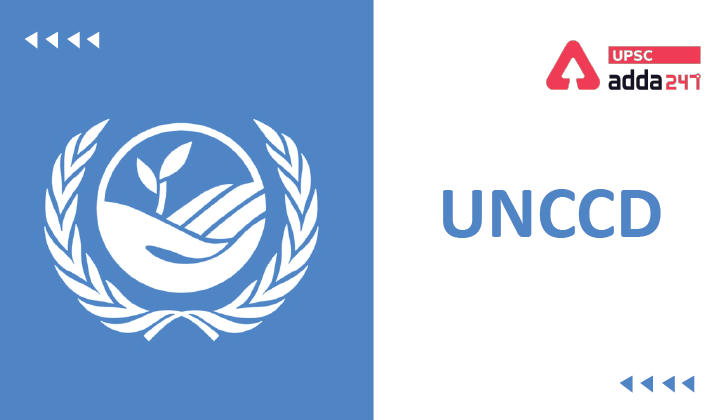Table of Contents
About UNCCD
- The United Nations Convention to Combat Desertification (UNCCD), was established in 1994.
- UNCCD is the sole legally binding international agreement linking environment and development to sustainable land management.
- The Convention addresses specifically the arid, semi-arid and dry sub-humid areas, known as the drylands.
- The new UNCCD 2018-2030 Strategic Frameworkis the most comprehensive global commitment to achieve Land Degradation Neutrality (LDN) in order to restore the productivity of vast expanses of degraded land, improve the livelihoods of more than 1.3 billion people, and reduce the impacts of drought on vulnerable populations to build.
Get Free Study Material for UPSC and State PCS Examinations
UNCCD history
- In 1977, the United Nations Conference on Desertification (UNCOD) adopted a Plan of Action to Combat Desertification (PACD).
- Despite this and other efforts, the United Nations Environment Programme (UNEP) concluded in 1991 that the problem of land degradation in arid, semi-arid and dry sub-humid areas had intensified.
- As a result, the question of how to tackle desertification was still a major concern for the United Nations Conference on Environment and Development (UNCED), which was held in Rio de Janeiro in 1992.
- The Conference supported a new, integrated approach to the problem, emphasizing action to promote sustainable development at the community level.
- The Rio Conference called on the United Nations General Assembly to establish an Intergovernmental Negotiating Committee (INCD) to prepare, by June 1994, a Convention to Combat Desertification, particularly in Africa.
- The Convention was adopted in Paris on 17 June 1994 and entered into force on 26 December 1996, 90 days after the 50th ratification was received.
- The Conference of the Parties (COP), which is the Convention’s supreme governing body, held its first session in October 1997 in Rome, Italy.
UNCCD 2018-2030 Strategic Framework
- To improve the condition of affected ecosystems, combat desertification/land degradation, promote sustainable land management and contribute
to land degradation neutrality. - To improve the living conditions of affected populations.
- To mitigate, adapt to, and manage the effects of drought in order to enhance resilience of vulnerable populations and ecosystems.
- To generate global environmental benefits through effective implementation of the UNCCD.
- To mobilize substantial and additional financial and non-financial resources to support the implementation of the Convention by building effective partnerships at global and national level.
UNCCD and India
- India ratified the UNCCD Convention in December 1996.
- In 2019, India hosted the COP 14 by taking over the COP presidency from China for the next two years till 2021.
- COP 14 was the first time that India hosted an edition of the UNCCD COP.
- The theme of the Conference was ‘Restore land, Sustain future’.
- India is among the select few countries to have hosted the COP of all three Rio conventions on climate change, biodiversity and land.
UNCCD COP 14: Important points
- Delhi declaration: Delhi Declaration is an ambitious statement of global action by each country on how to achieve Land Degradation Neutrality.
- Countries committed to address insecurity of land tenure, including gender inequality in land tenure, promote land restoration to reduce land-related carbon emissions and mobilize innovative sources of finance from public and private sources to support the implementation of these decisions at country-level.
Also Read:





 TSPSC Group 1 Question Paper 2024, Downl...
TSPSC Group 1 Question Paper 2024, Downl...
 TSPSC Group 1 Answer key 2024 Out, Downl...
TSPSC Group 1 Answer key 2024 Out, Downl...
 UPSC Prelims 2024 Question Paper, Downlo...
UPSC Prelims 2024 Question Paper, Downlo...
